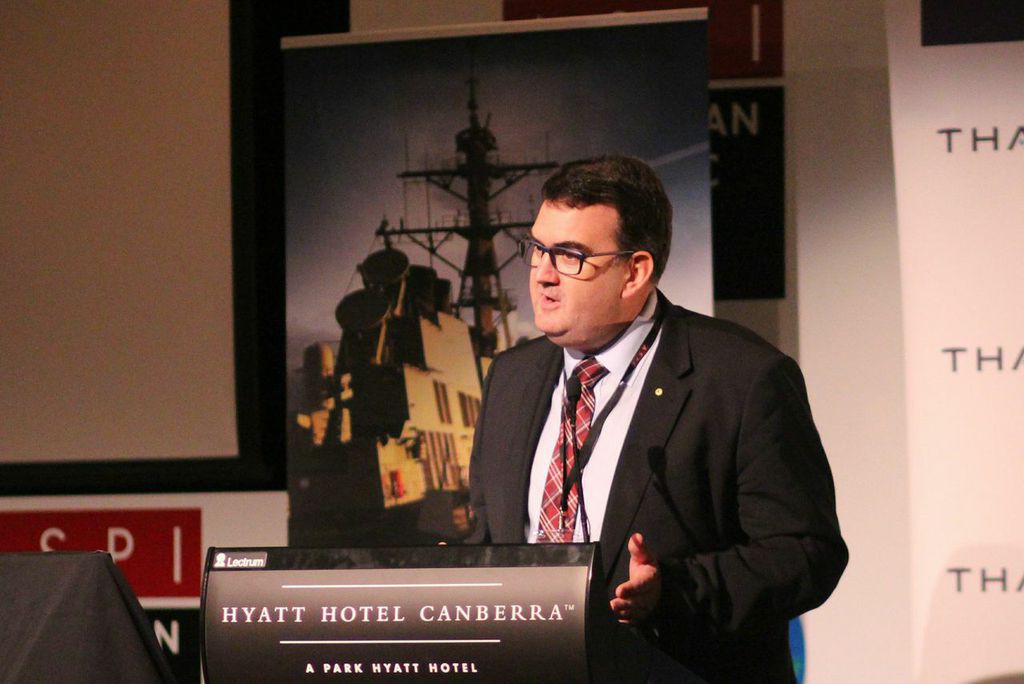
The second day of ASPI’s Future Surface Fleet conference has so far produced some forthright observations about the state of Australia’s naval shipbuilding industry, including the troubled AWD project.
The conference’s final day coincides with the release of the First Principles Review into Australia’s defence establishment. A number of the key recommendations, including the abolition of the Defence Materiel Organisation (DMO), will have a direct impact on the future of Australia’s naval shipbuilding industry. In this context Mr Colin Thorne, the General Manager of Land & Maritime at DMO, gave his remarkably frank assessment of the shortcomings of the $8 billion AWD program.
Thorne confirmed a further schedule slip of twelve months in the delivery of the destroyers, on top of previously announced delays. As Thorne stated, ‘that would mean a 2017 delivery of the first ship, 2018 for the second ship and early 2020 for the third ship’.
Continuing
yesterday’s rhetoric around the infamous ‘Valley of Death’, Thorne agreed with the Defence Minister that its onset is both inevitable and unstoppable—a theme which coloured the remainder of the morning’s discussion.
Early in his speech, Thorne reflected on his initial briefings on the AWD program with Don Winter: Winter was ‘full of marvel and disbelief: marveling at what had been achieved in a short time, disbelief that anyone would embark on such a high-risk journey from such a low base’.
According to Thorne, the primary issue that the AWD program faces today is one of ‘cost overrun caused by lower than expected shipbuilding productivity’. Shipbuilding for the AWD program currently runs at up to 170 man-hours per compensated gross tonne—an unpleasant thought, considering the Danes’ reportedly achieve 15 man-hours per compensated gross tonne. Rather than laying the blame on worker competence or work ethics, Thorne believed the problem to be found in an atrophy of shipbuilding capabilities by the time that the AWD program commenced. It seems that ‘engineers and trade supervisors had forgotten how to build ships to the required standards’, he contended.
Admitting the program has a problem is the first step. Thorne suggested that Australia can’t afford a ‘multi-billion dollar national shipbuilding industry founded on the mantra “we are not as bad as we could have been”’.
He also argued that the parties involved in the AWD project did not represent a pure alliance model. Ultimately, the divergent cultures of government business enterprises like ASC and publicly listed multinationals like Raytheon will result in tensions. When looking to future projects like SEA 5000, Thorne argues that:
‘The complexity around implementing Alliances, and choosing Alliance-compatible industry partners will militate against use of alliances in future major shipbuilding endeavors. You are unlikely to see any alliances in the Future of Australian shipbuilding as a result.’
To conclude, Thorne stated that despite the AWD program achieving a lot in a short period of time—especially from a workforce and industry that had not built ships ‘in a long time’—in the future, it’ll be important for Australia to ‘exploit the expertise of international ship designers and builders in leading and controlling future shipbuilding programs’.
 Print This Post
Print This Post